The People’s Republic of China (PRC) is engulfed in a firestorm of suspicion, concern, and criticism from Hong Kong residents and the international community over a contentious decision to adopt national security legislation covering the Hong Kong Special Autonomous Region.
PRC law requires public participation in lawmaking, which should apply to the Hong Kong legislation too. Although reports indicate that the Chinese Communist Party (CCP) is fast-tracking the process, with adoption as early as the end of June, the Hong Kong people are entitled to voice their views on draft language directly to the drafters and have them fully considered during the legislative process. Robust consultation will not persuade PRC leaders to abandon the project or fundamentally amend the legislation, but it will be important for the legitimacy of both the process and the final product.
How the new legislation came to be
The PRC legislature, the National People’s Congress (NPC) approved the decision on May 28. This legislation was presaged by the CCP’s October 2019 plenum, which tasked the central government to establish and complete “legal systems and enforcement mechanisms to preserve national security” in Hong Kong.
Still, state media covering preparations for the NPC’s May meeting did not mention passing such legislation. Even Hong Kong government officials were reportedly taken by surprise. First announced on the eve of the NPC’s opening, the proposal immediately prompted predictions that it signaled the end of the “one country, two systems” model that accords Hong Kong a “high degree of autonomy” to manage its own affairs and maintain a rights-based legal system with an independent judiciary for 50 years (until 2047) under Hong Kong’s “mini-constitution,” the Basic Law.
Promulgated by the NPC in 1990 to govern Hong Kong, the Basic Law also requires Hong Kong to enact laws “on its own” to prohibit treason, secession, sedition, subversion, and state secrets theft, and to restrict foreign political activities. The PRC claims that it is justified in taking matters into it its own hands since Hong Kong has failed to enact such legislation. An attempt in 2003 stalled amidst massive local protests, and sustained recent protests — allegedly supported by “external forces” — over a proposed extradition bill heightened the urgency.
Where it goes from here
The new decision requires Hong Kong to “complete” such national security legislation as soon as possible and requires the NPC Standing Committee (NPCSC), which has lawmaking authority between annual NPC meetings, to formulate laws that “establish and complete” Hong Kong’s legal and enforcement systems by proscribing an overlapping set of activities that seriously endanger national security. The NPCSC is accelerating the process to formulate such legislation, which may already be 70-80% completed. Deliberation of the draft law or laws will take place at its regular bi-monthly June meeting, as well as possibly a specially-convened NPCSC session. Observers foresee final passage by the end of June or within two months, taking effect in August, before the September elections for the Hong Kong legislative council.
The PRC Legislation Law, which stipulates that laws should reflect the will of the people and establishes an open, participatory lawmaking process, governs the NPCSC’s drafting of the Hong Kong legislation. Initial stages involve internal consultations with “all concerned parties,” including the Hong Kong government, outside experts and organizations, and committees such as the Constitution and Law Committee and the Hong Kong Basic Law Committee, a working committee under the NPCSC composed of six members from the mainland and six from Hong Kong.
Once a draft is fairly mature, it is submitted to the NPSCS, which normally meets every two months. Laws typically go through three readings, although two readings suffice if drafters reach a consensus at the second session. Complex bills may go through more than three drafts. Some reports suggest the Hong Kong national security legislation may be completed by the end of June in one session. The Legislation Law provides for a single deliberation with no public participation, but only for bills on which all concerned parties have reached consensus and that regulate a single matter or amend part of an existing law. Without knowing what law or laws the NPCSC is drafting or amending to implement the recent decision, it is hard to know how this provision might apply. In any event, bypassing the standard public participation process, even if arguably justified, would not necessarily be wise.
The chance for public comment
Draft bills and their explanations are generally published following the sessions in which they are deliberated, for a minimum 30-day written comment period, unless the Council of Chairpersons — comprised of the NPCSC’s chairman, vice-chairmen and secretary-general — decides not to publish it. All PRC laws adopted in recent years have undergone at least one comment-seeking exercise, with drafts available for comment online, and have frequently gone through two public comment proceedings.
Only the second draft of the controversial 2016 Foreign NGO Law was published for comment, although public input was taken on both the first and second drafts of the 2016 Cybersecurity Law, with the second draft available for an extra-long 60 days. In an accelerated legislative process for the 2019 Foreign Investment Law, the NPCSC published the first draft for comment for 60 days. During that period, it produced the second draft during an extraordinary NPCSC session and published it unofficially, so that commenters could also respond to the amendments. The draft was then adopted by the entire NPC at its annual March 2019 session. Several other laws, including the 2019 PRC Encryption Law, were accorded 60-day comment periods, and all five of the current draft laws were provided 50-day comment periods.
Given the controversy and high interest surrounding this legislation, the NPCSC should provide commensurate opportunities for domestic and international publics to give feedback as described in the Legislation Law. The Hong Kong Bar Association wrote the NPCSC to urge “meaningful public consultation” on the proposed legislation given its “momentous significance.” Allowing vigorous public participation would demonstrate an open, responsible attitude towards the impacted Hong Kong community, foreign residents and businesses, and overseas governments — such as the U.S., which grants Hong Kong special status, and the U.K., which has a continuing interest under its 1984 agreement with the PRC governing Hong Kong’s transfer from British to PRC sovereignty in 1997.
Specifically, the NPCSC should consider providing: 1) a 60-day comment period, since the NPSCS process is the only direct channel for most interested parties to participate; and 2) additional public participation channels. Vice Premier Han Zheng, who oversees Hong Kong affairs, has promised to hear the opinions of “people from all walks of life in Hong Kong in multiple ways during the legislative process.” NPCSC procedures allow for third-party assessment by universities, think tanks, or scientific research institutions for controversial but significant bills and for consultation with representatives from government, business, and society on difficult issues attracting wide public attention or involving “major interest adjustments,” as in this legislation. PRC leaders told Hong Kong Chief Executive Carrie Lam in June 3 meetings that seminars would be organized in Beijing and Shenzhen, across the border from Hong Kong, potentially involving the Hong Kong Legislative Council’s president, legal experts, and local delegates to the NPC and its national political advisory body. Holding such workshops in Hong Kong — although currently ruled out — would also be appropriate, as would publicizing the content of such discussions.
The Legislation Law recommends hearings for controversial bills or those involving “major interest adjustments.” The NPCSC has only held one legislative hearing, on the Individual Income Tax Law in 2005. In light of the intense local apprehensions about the law’s impact on civil rights and freedoms, holding one or more televised hearings in Beijing or via video and inviting representatives of diverse Hong Kong and other constituencies would help to assuage concerns and propose ways to address them in the legislation.
“The…comment-seeking procedure may be the only opportunity most Hong Kong people have for direct input.”
Why process matters
Public participation exercises may only result in modest improvements to the draft national security legislation, as happened with the PRC’s Foreign NGO and Cybersecurity Laws. Nonetheless, process matters. The NPCSC comment-seeking procedure may be the only opportunity most Hong Kong people have for direct input. Inadequate public consultation contributed to the widespread opposition to the Hong Kong national security bill that was shelved in 2003, which some speculate has served as the foundation for current drafts under development. Affording meaningful opportunities for interested parties to explain concerns and propose amendments to the current draft laws, accepting reasonable suggestions, and explaining why others were not adopted could help lessen, if not prevent, opposition to the resulting legislation.
The PRC boasts the only national legislative notice-and-comment procedure in the world. The NPCSC should employ it to provide credible, inclusive civic consultation on the Hong Kong national security legislation. At a minimum, this effort would confer procedural legitimacy on the NPCSC, the process, and the resulting legislation. At best, it might facilitate public cooperation in implementing the new laws and institutions while enhancing Hong Kong’s rule of law, stability, and prosperity, rather than undermining it.
James Haynes assisted with research and editing for this piece.
The Brookings Institution is committed to quality, independence, and impact.
We are supported by a diverse array of funders. In line with our values and policies, each Brookings publication represents the sole views of its author(s).


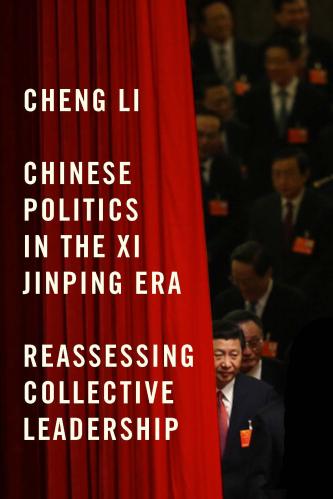
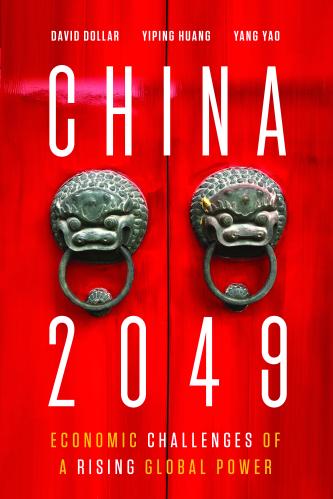
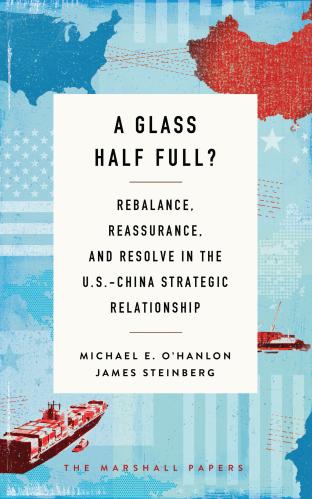
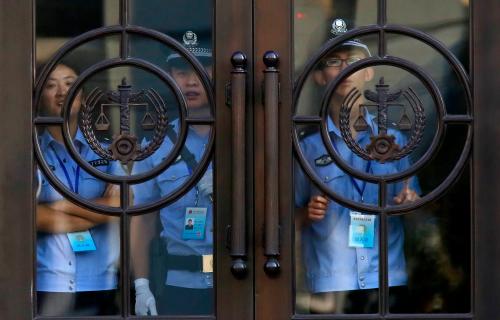
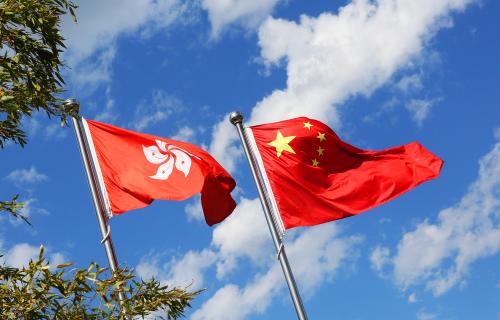
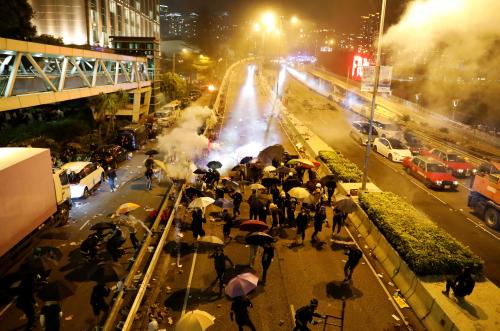

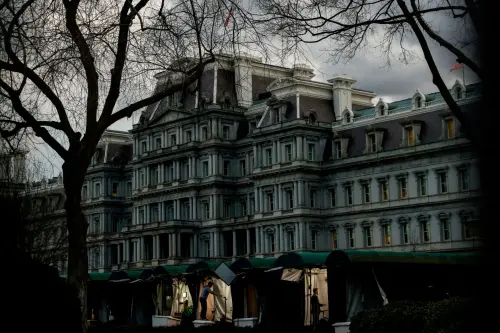
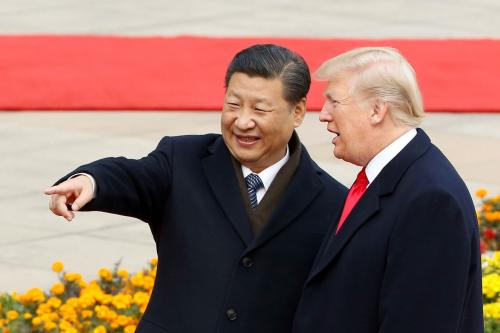
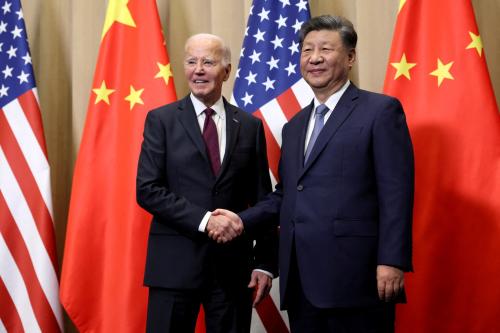
Commentary
Chinese law requires public consultation in lawmaking: What does it mean for the Hong Kong national security legislation?
June 8, 2020